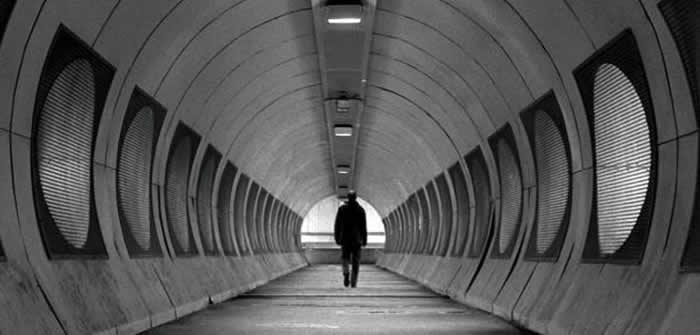Set in a futuristic society, in a period close to ours, a devastating climate change has threatened to destroy all life on Earth and global corporations now rule the earth, controlling agricultural cultivation. The safe elite cities are protected from migrant invaders by magnetically shielded walls. For no apparent reason, a genetic crisis breaks out that hits all plantations. Professor of genetics, Erol Erin (Jean-Marc Barr), is set to investigate the reasons for the outbreak and aims to track down Cemil Akman (Ermin Bravo), another geneticist formerly employed by the same company, who wrote a theory on the Genetic Chaos and the M Particle. Professor Erin must escape the city and head to the forbidden Dead Lands to find him, but his true journey will only begin after their meeting.
Grain is a quest towards human limitations and the pseudo-liberation that technology could potentially offer and that we tend to exploit. Kaplanoğlu deals with a universal subject that might initially appear to appeal more to ecological awareness but its deep roots go beyond that, as the genetic crisis leads to existential questioning and inevitably the film becomes more of an eschatological essay. As expected, only the threat of extermination leads the heroes and subsequently us towards a quest for survival before it is too late. Grain, co-written with Leyla İpekçi, doesn’t look for answers – they’re probably non-existent. The story presents the audience with problems with the expectation that reality won’t surpass fiction, despite implications to the contrary.
Kaplanoğlu has created his most ambitious work to date, abandoning his characteristic low-key aesthetics and expanding his universe in a very overwhelming way. Having an international cast on his side, shot in English and spanning locations on three continents, he creates a visually imposing film with a dominating greyscale cinematography by Giles Nuttgens that demands and attracts the audience’s attention. Despite the visual magnitude of the production, he remains narratively and dramaturgically faithful to his inner almost fragile slow-paced pursuits and cinematic influences. The Tarkovskian references in Grain, that were present also in the trilogy, may seem particularly prominent. All the elements are there, a guide, a professor, a zone, a mysterious journey into existence, even the acid rain. However, as is the case with Aleksei Balabanov’s swan song Me Too, Kaplanoğlu borrows religious mysticism from Stalker’s myth, adapting it to his sensitive environment and manipulating it into an urge against humanity’s irreversible extinction. Grain expands beyond the corporate set borders, becoming an outcry for future or present salvation.
Grain is a Turkish-German-French-Swedish co-production by Nadir Öperli, Semih Kaplanoğlu (Kaplan Film), Johannes Rexin, Bettina Brokemper (Heimatfilm), Michel Zana (Sophie Dulac Productions), Fredrik Zander (The Chimney Pot) and ZDF/Arte. International sales are handled by German company The Match Factory.
Source: Cineuropa

